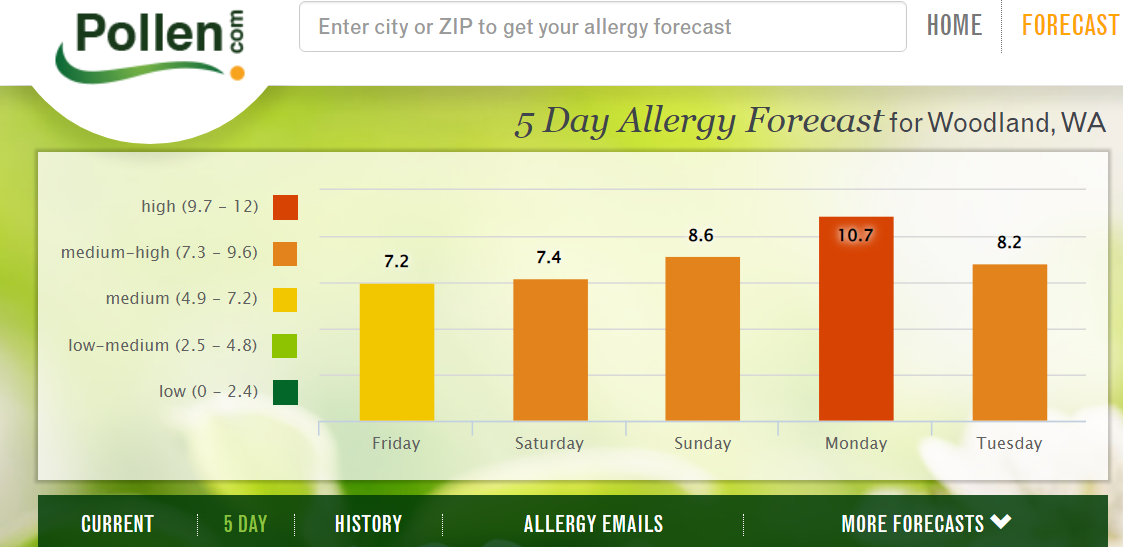Pollen counts continue to stay high, and as you get older, your body undergoes all sorts of changes, including changes to your immune system. Unfortunately, this can make you more susceptible to developing allergies or worsening symptoms. Allergies can make life miserable for anyone, but they can be especially tough if dealing with other health issues. That’s why it’s can be helpful to be aware of some of the changes your body will go through and learn strategies to help manage them proactively. With the right management strategies and a focus on holistic approaches, you can ensure allergies won’t hold you back from living life to the fullest.
Where is the Immune System?
As we age, the body undergoes many changes, and one of the most important changes happens to our immune system. It’s crazy to think that something we can’t see or touch can have such a huge impact on our health! But the truth is, as the immune system changes, you become more vulnerable to developing allergies and other health issues.
Research shows that about 70% of the immune system is located in the gut and relies on the health of the gut microbiome – the collection of bacteria in the digestive tract. The balance between good and bad bacteria in the gut largely depends on your diet and medications.
What Foods Nourish Your Gut Biome
The typical Western diet is high in animal proteins, sugar, processed foods, and saturated fat. These food choices reduce the diversity of gut bacteria, promoting inflammation and chronic disorders. To support the growth of a large variety of beneficial bacteria colonies in your gut, consider eating foods they prefer.
Plant foods contain the complex carbohydrates and fiber these bacteria need to promote their growth and diversity. The next time you need a snack, try reaching for an apple or carrot instead of a cookie to enhance your gut and overall health.
Antibiotics and Fermented Foods
 If you’ve taken antibiotics recently, scientific research shows part of the long-term impacts of antibiotics on gut bacteria is a reduction of variety, leading to a reduced immune response. One study researched the changes in immune response after treatment with antibiotics. The study found that mice treated with antibiotics had a reduced immune response. These mice had low counts of virus-fighting white blood cells, weak antibody responses, and less Caspase-1, a protein critical to stimulating your immune response to inflammation.
If you’ve taken antibiotics recently, scientific research shows part of the long-term impacts of antibiotics on gut bacteria is a reduction of variety, leading to a reduced immune response. One study researched the changes in immune response after treatment with antibiotics. The study found that mice treated with antibiotics had a reduced immune response. These mice had low counts of virus-fighting white blood cells, weak antibody responses, and less Caspase-1, a protein critical to stimulating your immune response to inflammation.
There are simple things you can do to help rebuild your gut microbiome. Add fermented foods to your diet to help repair and improve your gut microbiome. Fermented foods like sauerkraut, kimchi, tofu, yogurt, kombucha, and kefir are full of probiotics and can be made at home. Lactobacillus is a beneficial bacteria found in many fermented foods and probiotic supplements. The research on Lactobacillus shows it can help reduce the severity of the flu by supporting the immune system. Consuming foods rich in Lactobacillus and probiotic supplements may have potential health benefits, including enhancing immune function and reducing inflammation.
The Latest Research on Adipose Tissue
Adipose tissue, also known as fat tissue, has been found to have significant effects on the immune system.
Firstly, adipose tissue contains various types of immune cells, including macrophages, T cells, and B cells. These immune cells can modulate inflammation and contribute to immune responses. For example, fatty tissue macrophages can produce cytokines that control inflammation in the body. When your body has too much fat, it will make more cytokines that increase inflammation. These cytokines can lead to insulin resistance and other metabolic issues.
Secondly, adipose tissue secretes a variety of signaling molecules, known as adipokines, that can also impact the immune system. For example, the adipokine adiponectin has anti-inflammatory effects and can improve insulin sensitivity. In contrast, other adipokines such as leptin and resistin can promote inflammation and contribute to the development of metabolic disorders.
 Obesity, which is characterized by excessive adipose tissue, has been linked to chronic low-grade inflammation and immune dysfunction. Part of this dysfunction is being regulated by the adipose tissue. Obesity-induced inflammation can contribute to the development of various diseases, including type 2 diabetes, cardiovascular disease, and certain types of cancer.
Obesity, which is characterized by excessive adipose tissue, has been linked to chronic low-grade inflammation and immune dysfunction. Part of this dysfunction is being regulated by the adipose tissue. Obesity-induced inflammation can contribute to the development of various diseases, including type 2 diabetes, cardiovascular disease, and certain types of cancer.
It hasn’t been proven there is a one size fits all size for adipose tissue. But, the research shows there is a causal relationship to dysfunction of the immune system and metabolism when your fat tissues get too large. One way to think of this is an enlarged heart. There isn’t a one size fits all for the size of your heart. There is a range that most people fall into. When you’re outside that range, that’s when there are problems. For fat tissues, that range is not known. What is known is when you fall outside that range, there are problems.
Summary
In summary, adipose tissue plays an important role in regulating immune function, and dysfunction of this tissue can contribute to immune-related disorders. Small changes in your food choices or amounts can assist with maintaining, reducing, or increasing your fat stores and improving your immune function.
Promoting more natural health and well-being is about being open to identifying small changes you can make in your lifestyle choices that greatly enhance your health. The willingness to take small steps allows you to work towards living a more medication-free life and prioritize your health holistically so that you can live your life to the fullest.

